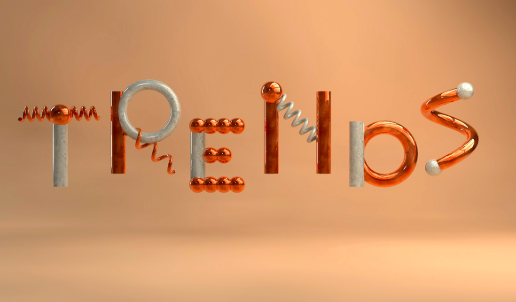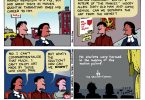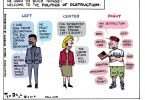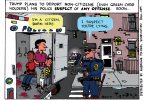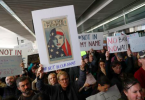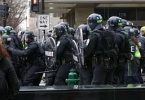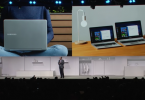aNewDomain — Edward Snowden and Daniel Ellsberg met in Moscow recently to exchange views on freedom of information and Snowden’s fate.
Ellsberg is a welcome guest on any campus these days. In 1971, while a military analyst at the Rand Corporation, he leaked the Pentagon Papers to The New York Times.
The two met last winter, according to Ellsberg, who revealed details about the meeting this week.
In a post announcing the meeting, Ellsberg wrote:
[Snowden] is the quintessential American whistleblower, and a personal hero of mine. Leaks are the lifeblood of the republic and, for the first time, the American public has been given the chance to debate democratically the NSA’s mass surveillance programs. Accountability journalism can’t be done without the courageous acts exemplified by Snowden, and we need more like him . . .”
Snowden said:
If we do nothing, we sort of sleepwalk into a total surveillance state where we have both a super-state that has unlimited capacity to apply force with an unlimited ability to know (about the people it is targeting) — and that’s a very dangerous combination. That’s the dark future. The fact that they know everything about us and we know nothing about them — because they are secret, they are privileged, and they are a separate class … the elite class, the political class, the resource class — we don’t know where they live, we don’t know what they do, we don’t know who their friends are. They have the ability to know all that about us. This is the direction of the future, but I think there are changing possibilities in this …”
Although Congress already limited the powers of the NSA, the courts still have cases pending against the NSA by private citizens. A federal judge this week actually agreed with Snowden’s view.
In his ruling Monday, Judge Richard Leon of the U.S. District Court reiterated his assertion that the NSA’s program “likely violates the Constitution” and said that “the loss of constitutional freedoms for even one day is a significant harm.”
Judge Leon’s decision to end the collection is a victory for the plaintiffs in the case and for civil liberties groups who have been asserting that the program was unconstitutional since it was first exposed by Edward Snowden in 2013.
Even that victory is minor since the NSA’s collection program is already set to end on November 29.
The ruling is significant as it’s rare that a judge ever enjoins the NSA from spying.
You can help by making a difference and support those journalists and others who believe in a more open society. Protecting the digital communications of journalists is now one of the biggest press freedom challenges in the 21st Century.
Please support the “Freedom of the Press Foundation,” whose board includes Daniel Ellsberg, the whistleblower who disclosed the Pentagon Papers; Glenn Greenwald, a journalist who writes about civil liberties for The Guardian; John Perry Barlow, a co-founder of the Electronic Frontier Foundation; Xeni Jardin of the website Boing Boing; and John Cusack, an actor who has been a vocal opponent of government secrecy.
For aNewDomain, I’m David Michaelis.



